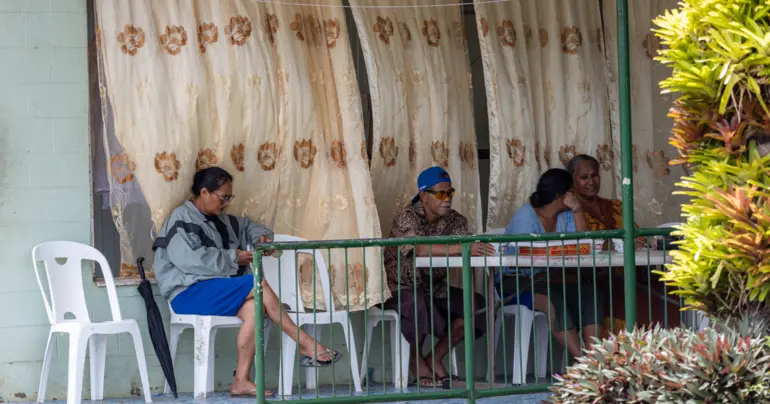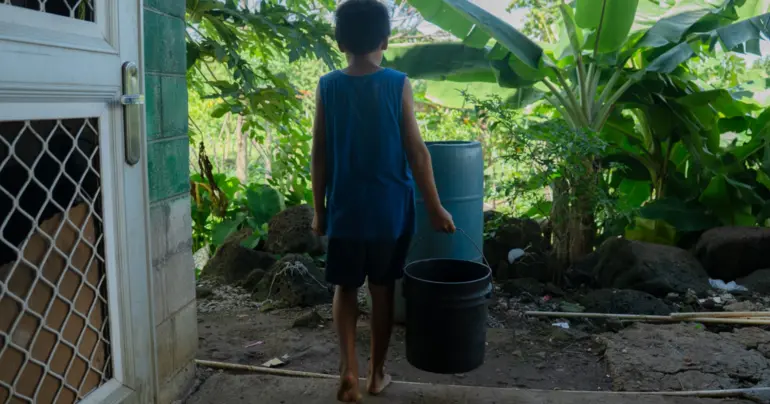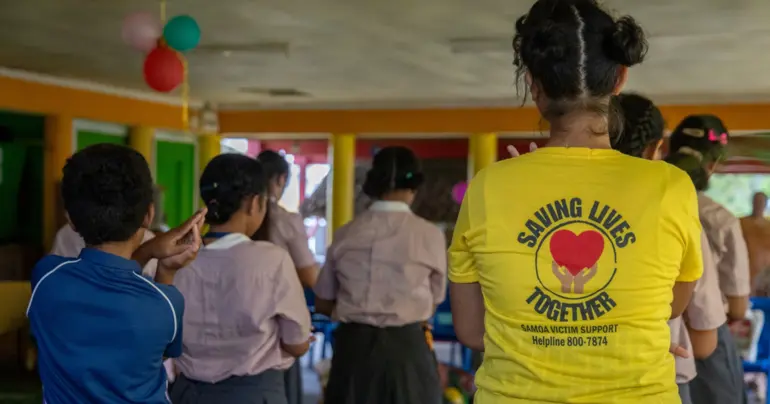We have been warned, take heed
In August last year, authorities in the Pacific nation of Guam arrested a Chinese national who allegedly operated a vessel that arrived in from the Northern Marianas.
The arrest was made following the government’s launch of a multi-agency task force tasked with curbing the illegal entry of foreigners into Guam.
Now what they did not do was help the vessel operator fill in a few forms and release the vessel. They also did not let the vessel go without a full inspection because it was a pleasure boat and not a commercial boat.
The bigger picture is not just about that boat from American Samoa but other ‘pleasure boats’ which have been coming in similar ways with dangerous cargo.
‘Pleasure boats’ are defined as cruise boats which make short runs for entertainment and tourism. According to law, once that ‘pleasure boat’ enters another country’s territorial waters it no longer holds that privilege of being a pleasure boat.
The Minister of Works, Transport and Infrastructure Olo Fiti Vaai said that the MWTI’s involvement in this matter was to see whether the normal inspections at port conducted by MWTI on behalf of Samoa for vessels was required for Kite Runner.
He also said the information given to the Ministry noting that the vessel was registered in American Samoa as a pleasure boat, meant that the inspections were not required by his ministry as it was a pleasure boat and not a commercial vessel.
This is very contradictory to the various laws governing entry of vessels into Samoa.
Section 12 of the Maritime Zones Act states; “Prohibited passage - Passage of a foreign vessel through the territorial sea shall be prejudicial to the peace, good order and security of Samoa if it engages in any of the following activities – (f) The loading or unloading of any commodity, currency or persons contrary to the laws and regulations of Samoa.”
Did this happen? Items were offloaded from the ‘pleasure boat’ in Savaii. To date we do not have word from our authorities on what those items were.
The United Nations Office on Drugs and Crime have stated that criminal activities, including those undertaken by transnational organised crime groups, are increasing throughout the Pacific region.
There are four key crime flows impacting Pacific Islands including Samoa. These are drug and precursor trafficking; trafficking in persons and smuggling of migrants; environmental crimes (with a focus on fishers crimes and illegal timber trades); and, small arms trafficking.
There are numerous indications that these different crime types are affecting individuals, families, communities and countries across the Pacific region to varying degrees, in addition to impacting sustainable economic development and regional safety and security.
For example, ongoing seizures in numerous Pacific nations of illicit drugs such as methamphetamine, cocaine and heroin highlight the risk of spillover effects of illegally manufactured and trafficked substances into local markets.
Human trafficking for sexual exploitation also continues to occur in parts of the Pacific region, with evidence of links between such crimes and extractive industries, including fishing, logging and mining.
It is therefore highly recommended that Pacific governments and authorities focus on: addressing key knowledge, resource, and data gaps relevant to transnational crimes; ratifying treaties and conventions relevant to transnational crimes in the region; strengthening cross-border cooperation and building the technical capacity at both the national and regional levels; and developing a regional consensus on priorities so as to mitigate the risk posed by limited resource availability.
When impact on local communities is mentioned, we do not have to look very far. Meth is more readily available in Samoa now. There are more people using this highly addictive synthetic narcotic because the arrests being made by police is showing that.
There is an increase in thefts; this is evident when police gather stolen items from alleged drug peddlers.
There is going to be another flow on effect from meth and this is the burden on the health system. Take a look at New Zealand for example. A report from New Zealand suggested that meth exerts an extra burden of NZ$15 million on their health system.
The bigger question which many members of the public are asking is what is being done to address the border security concerns.
The Royal Australian Airforce is here this week and they have been flying over the islands and its territorial waters to help Samoa but they will be gone soon.
Our patrol boats are arriving later this year and until then we are heavily reliant on our foreign friends to aid with our border security.
The unique geography of the Pacific region creates a significant challenge for drug enforcement, according to the Pacific Islands Chiefs of Police network.
Its executive director Glyn Rowland said the sheer size of the Pacific Ocean makes it difficult to detect the movement of illegal drugs, which can be easily concealed and transported in small vessels.
Mr Rowland said the Pacific is a transit route from South America to the lucrative drug markets of Australia, and to a lesser extent New Zealand.
Samoa’s limited resources in this key area make it quite vulnerable but that does not mean that anyone who dares enter Samoa illegally gets off with a slap on the wrist.
Every vessel that enters Samoa needs a thorough inspection; whether it is a commercial boat or a pleasure boat.
As the arrests and seizures in the Pacific show, it is the so-called pleasure boats which are involved in trafficking cases.
Let us re-direct our focus on issues which need urgent attention and this is one of them. We need to get on top of the border security because the repercussions are far worse if we just sit on it.











